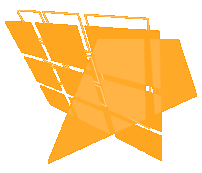| news | | archive | | email | | links | | current issue | |

|
The terrorism of names What's in a name? That which we call a rose by any other name would smell as sweet, wrote William Shakespeare in the late 16th century. In the age of global terrorism Shakespeare is hardly applicable. Now, the politics of names assumes far greater importance than in love-struck Romeo’s speeches. Reporting the latest assault on Jammu’s Raghunath temple, Pakistan’s leading national daily, Dawn, termed it an attack by ‘activists fighting for freedom’. Pakistan-based Lashkar-e-Toiba which was reportedly responsible for the attack is the largest terrorist outfit in South Asia and, yet, Pakistan’s chief newspaper referred to its cadres as ‘activists fighting for freedom’. In fact, this is a climbdown from the more regularly used line that ‘freedom fighters’ are waging a ‘struggle’ to free Muslim Kashmir from ‘Hindu India’. However, a few sane voices have risen. In Pakistan Today last year, Tashbih Sayyed, commented bitterly: ‘‘Now that we have learnt our lessons in Afghanistan, albeit so tragically, we will have to be extra careful before we extend our hand of cooperation to any such ‘freedom’ movement’’. Yet the ‘mainstream’ press in Pakistan is having great trouble calling a spade a spade. This is because for decades, the middle class Pakistani has been programmed into believing that a jihad was being carried out against unbelievers in ‘Indian-occupied Kashmir’. In Oxford, at the time of the hijacking of IC-814, I met a member of the English-speaking Pakistani middle class who, in spite of calling herself a feminist journalist, seemed totally brainwashed. When I sharply criticised the Taliban for hosting a hijacked plane in Kandahar and then offering safe passage for the released terrorists back into Pakistani territory, the journalist’s feminism unravelled in a second: ‘Don’t say a word about the Taliban. They have done nothing wrong’. I was taken aback. Here was a gender activist defending an act of international terrorism! The Indian media must also bear some of the blame for fighting shy of naming terrorists as such. The national dailies use the word ‘terrorist’ only occasionally. The killers of Chattisinghpora are called ‘militants’ and sometimes the assailants of the Parliament of India are called ‘Kashmiri armed men’. Some newspapers even go to the foolish extent of writing terrorist within quotation marks, ie, ‘terrorists’, or worse still, ‘suspected terrorists’. Weak language in Indian dailies is not new. In the eighties, the LTTE were seen as ‘freedom fighters’ against Sinhala chauvinism in Sri Lanka. Once Rajiv Gandhi was assassinated by these same Eelam ‘liberators’ and once India realised its folly of actively supporting the LTTE, the media performed a U-turn and began to use the word ‘terrorist’ for Prabhakaran’s Tigers. India has relatively far greater freedom of speech than Pakistan. If adequate public pressure is brought then positive changes do come about in nomenclature. The Chandigarh Tribune has already taken a bold lead by calling terrorists by no other name but terrorists. Failing to label villainous terrorists serves the interests of the Pakistani military and other enemies of peace. It builds up a powerful belief in Pakistan that the Jaish-i-Muhammad and Harkat-ul-Mujahideen are actually virtuous crusaders. When the world calls for an immediate cessation of cross-border terrorism, this constituency shouts that India has succeeded in its nonsensical ‘Pakistan-bashing’ by poisoning Europeans and Americans. This is a very common accusation levelled against veteran American journalists like Selig Harrison. When a neutral outsider condemns these religious fanatics, he or she can be instantly dismissed as an ‘Indian agent’ or ‘Zionist’. Daniel Pearl paid the price for being honest about terrorism. After September 11 and the ‘Pakistanisation’ of al Qaeda, there have been calls for a plan to ‘de-jihadise’ Pakistan. The replacement of religious madrasas with modern scientific schools is considered the main technique for de-jihadisation. But what about educated Pakistanis who have obediently swallowed the ‘freedom struggle’ propaganda all their lives? The only way to do it is by being unflinching about defining anyone who kills innocent civilians as nothing other than terrorists. The writer is a columnist with ‘Asia Times’, Hong Kong |
Akhand
Bharat Foundation © 2002 (All Rights Reserved)